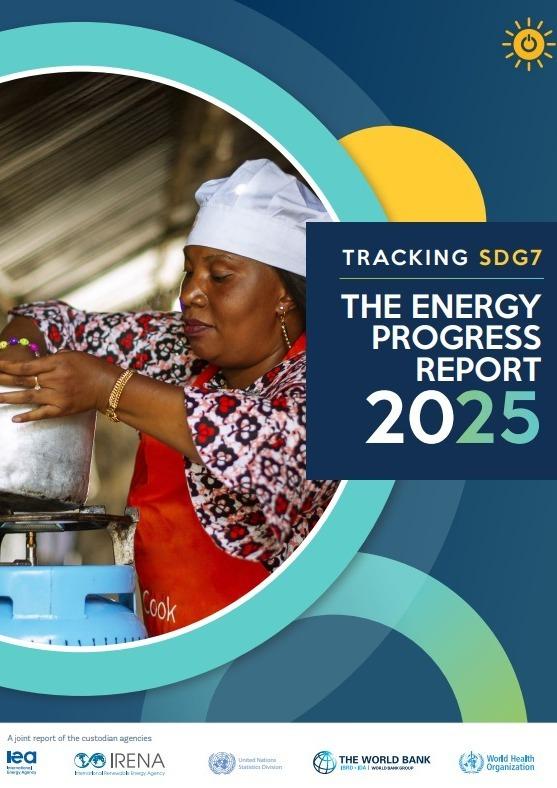The 2025 Tracking SDG 7: The Energy Progress Report provides a comprehensive overview of global progress toward achieving Sustainable Development Goal 7 (SDG 7), ensuring access to affordable, reliable, sustainable, and modern energy for all by 2030. The report highlights uneven progress across regions. While global access to electricity has reached 92%, 666 million people still remain without it, mostly in Sub-Saharan Africa, where population growth is outpacing electrification efforts. Similarly, 2.1 billion people lack access to clean cooking solutions, with Sub-Saharan Africa again facing the widest gaps, particularly in rural areas. Renewable energy adoption has grown steadily, with renewables now comprising nearly 18% of total final energy consumption, yet this is insufficient to meet climate and development goals. Energy efficiency improvements are falling short, requiring a 4% annual improvement to meet the 2030 target.
Financial flows toward clean energy reached $21.6 billion in 2023, recovering from pandemic-related drops, yet remain below 2016 levels and are not equitably distributed, least-developed countries (LDCs) and small island developing states (SIDS) continue to receive a fraction of total flows. Off-grid renewable energy, especially solar, shows significant promise for electrifying rural and underserved communities. However, scaling these solutions requires improved data, tailored finance, and inclusive policies, particularly to address gender disparities. Looking ahead, the report stresses that tripling renewable energy capacity and doubling energy efficiency improvement rates will be essential, alongside an estimated $4.2–4.5 trillion in annual investments by 2030 to meet SDG 7 goals.





